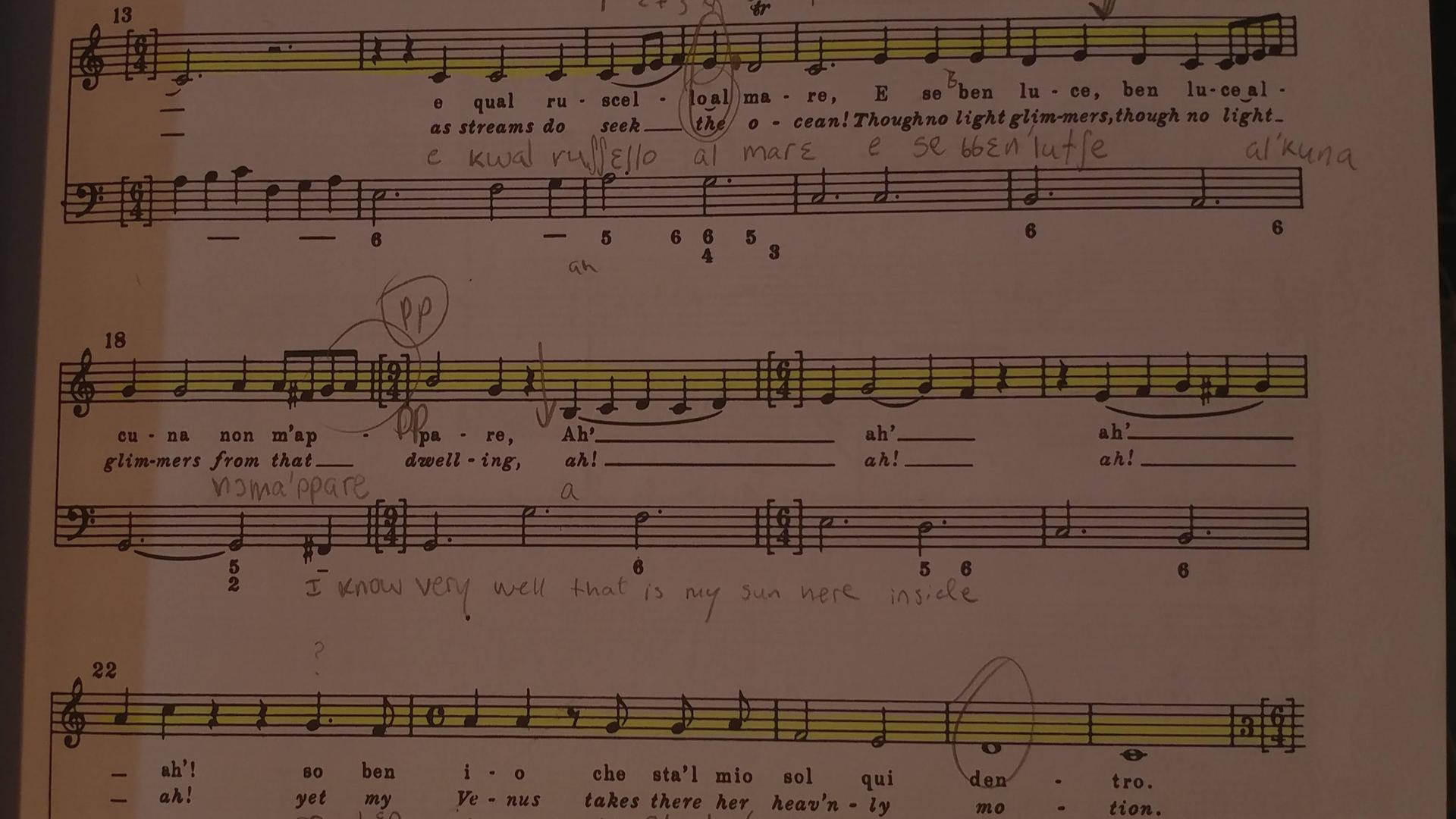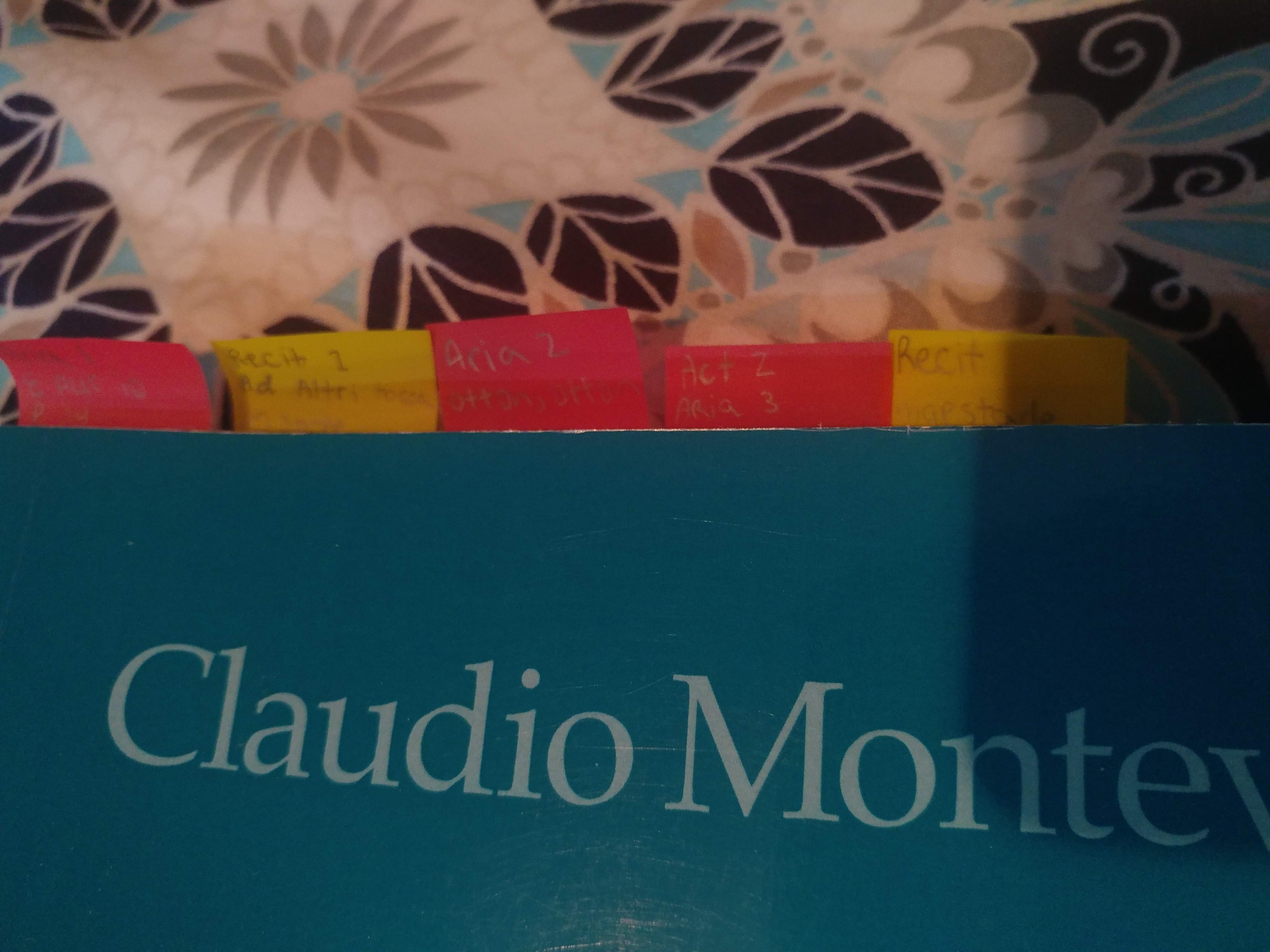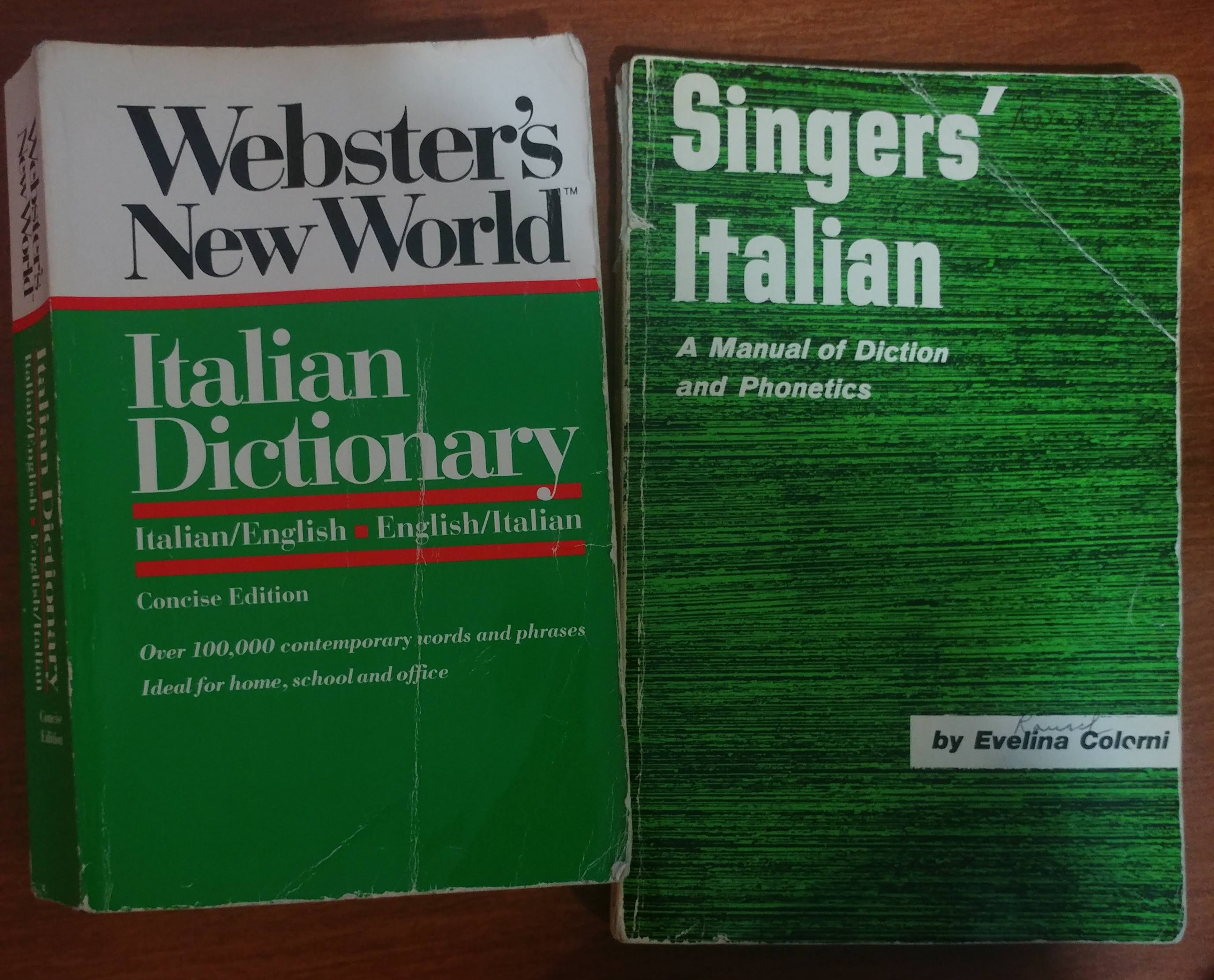
Rehearsals for the undergraduate opera are in full swing now and we are getting ready to put on quite the show.
This year, we are putting on Offenbach's Orpheus in the Underworld and our director, Mo, has a vision for the show that I was definitely not expecting but it is turning out to be so much fun! The colors, lights, costumes, staging, and sets are exciting and new, and the show interacts with the audience in a really cool way.
Once you discover that you have been cast, the whole opera role learning process begins with the initial email from vocal arts to pick up the score. It is then expected that you begin the hard work of learning all the music, the story, and the context. Here is a crash course of my process:
Step 1: Highlight every single line of music that you are singing. Be sure not to miss any of your lines!

Step 2: Put bookmarks in the music and label each section of music to find where you sing very quickly, being sure to distinguish arias from duets, ensembles and recitative. I usually color code each section of music. For example, arias would be under a red sticky note, recits would be under blue, ensembles under green, etc.

Step 3: If the opera is in a different language, translate word-for-word all of your parts and at least all the parts of other characters in the same scenes as you.
Step 4: No matter what language you are singing in, grab a dictionary and the resources for whatever language you are doing and IPA every word. (IPA stands for the International Phonetic Alphabet and it is used to pronounce words correctly no matter what language you are in. There are specific rules and exceptions in every language and they are very important in order for the audience to understand everything you are singing.)

Step 5: Listen to a recording while looking on with the score just to get an idea of the big picture of the work.
Step 6: Speak through all the words, making sure your language is flowing and you understand everything you are saying. Try connecting all of the words together to practice for future legato and spinning through the words. Then learn the rhythm and speak the words in rhythm. This is a crucial step because this way you won't be tripping over surprise sixteenth notes or dotted quarter notes when you are learning the notes ... which brings me to:
Step 7: Begin learning the notes. My recommendation is playing through one measure at a time multiple times. When you are sure you can play it on the piano, hum it back. That should be enough to get the sounds in your ear. You don't want to sing too much while learning music because when we don't know the correct pitches, we tend to sing incorrectly and that can become very tiring.
Step 8: Sing the piece through fully. Find a pianist and run through the entire work you are practicing. If you don't have a pianist, try singing along to multiple different recordings. Try not to stick to one recording because doing copy-cat work isn't the greatest idea and is usually obvious. You are a queen/king, so do your own thang!!
Step 9: Begin music and staging rehearsals. Music rehearsals involve coachings for music, diction, language, musicality, character, and blend if there are ensemble parts involved. In addition, staging rehearsals are essentially when you begin to spend a lot of time with the director. At this point you will have learned all of your music and will have a good idea of what the context/plot of the opera/music work will be. The director will then give you their vision, the directions for where you need to be on stage and some ideas on how your music can be delivered. The staging rehearsals are ultimately what bring the opera to life. Characters come together and scenes are created with conflicts, plot building, resolutions, and drama.
Step 10: Performance time! Once the full opera has been staged and you have been fitted and costumed with shoes, dresses, wigs, and all, it's time for the show! The audience will gather in their seats, the lights will come up, and it will be show time—time for everything you have worked for to come to fruition. Because of your brilliant preparation that you now know how to do because of my blog, you'll steal the show!

I hope you enjoyed reading my preparation and rehearsal process blog post.
Till next time,
XOXO,
Maggie